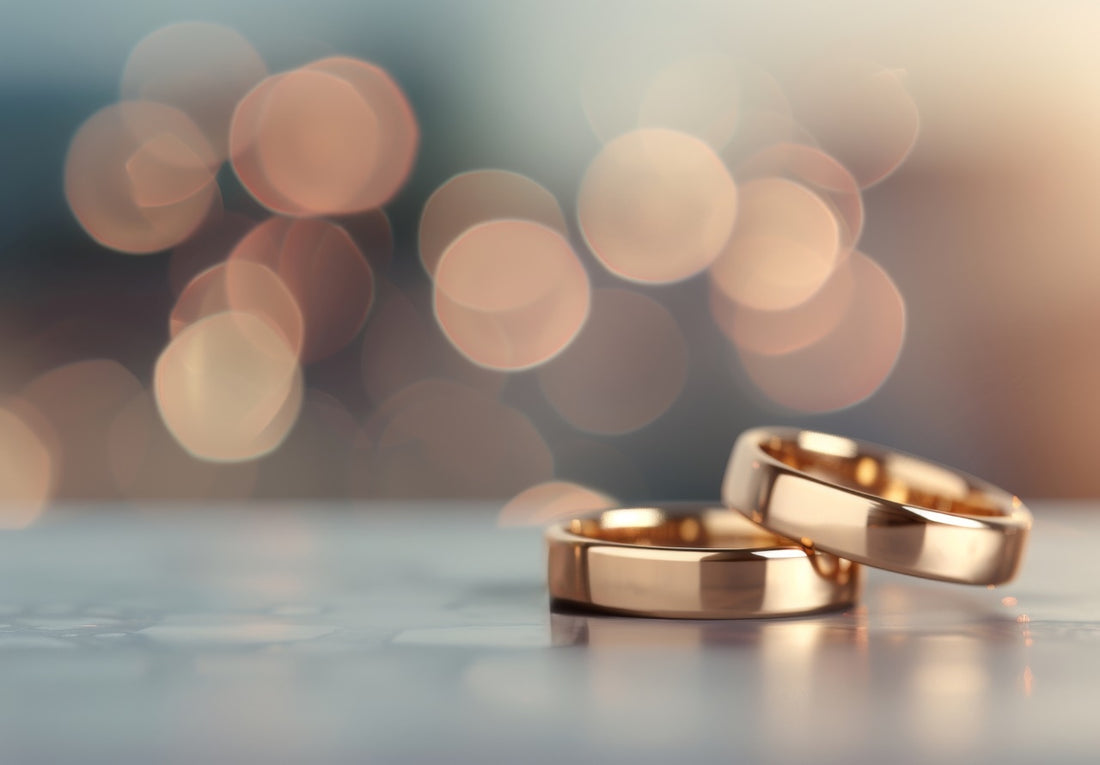
Do Wedding Bands Have to Match?
When it comes to wedding planning, there's an endless list of decisions to make; from the grandest gestures to the tiniest details. Amidst all the excitement of selecting venues, crafting guest lists, and choosing the perfect attire, you might find yourself asking: do wedding bands have to match?
Today, we're diving deep into this age-old question, exploring traditions, advantages, and factors to consider when choosing your symbolic circles of love. Let’s take a look!
The Tradition of Matching Wedding Bands
Historically, the concept of matching wedding bands has been deeply rooted in many cultures, harking back to a time when marriages were often arranged, and matching rings served as a visible sign of the union to the community. In many ways, these identical bands represented the idea of two individuals coming together as one, sharing a life and a future.
However, as societal norms have evolved and personal expression has taken centre stage in modern relationships, the necessity of matching wedding bands has come into question. While some couples still find comfort and meaning in the tradition, others are breaking away from this convention, opting instead for rings that reflect their individual tastes and personalities.
Advantages of Matching Wedding Rings
There's undoubtedly a certain charm to wearing matching wedding bands. For many couples, the similarity in their rings serves as a constant reminder of their shared commitment and the vows they've made to each other. When you glance down at your hand and see a ring that mirrors your partner's, it can evoke a sense of connection, even when you're apart.
Additionally, matching bands can create a visually pleasing aesthetic, especially in wedding photographs. There's something undeniably striking about seeing two hands joined, adorned with identical symbols of love and commitment. So if you’re a couple who value symmetry and uniformity, matching bands can be the perfect choice.
Advantages of Non-Matching Wedding Bands
On the flip side, opting for different wedding bands can be equally meaningful and perhaps even more personal. At JPA Events, we’ve worked with couples who’ve opted for rings that reflect their unique personalities and styles, rather than matching bands, and the symbolism is simple: while a couple may be united in marriage, they remain distinct individuals with their own tastes and preferences.
Non-matching bands also offer practical advantages. For instance, if you and your partner have different lifestyles or professions, you might require rings with varying levels of durability or designs that are more suited to your daily activities. Plus, choosing separate styles allows each person to select a ring they truly love and feel comfortable wearing every day.
Factors to Consider When Choosing Wedding Bands

Personal Style and Preferences
Your wedding bands are something you'll wear every day, so it's essential that they align with your personal style. Whether you prefer classic and timeless or modern and unique, your ring should be a reflection of you. And as we mentioned above, if you and your partner have vastly different tastes, forcing yourselves into matching bands might lead to one or both of you feeling unsatisfied with your choice.
Metal Type and Durability
Different metals offer varying levels of durability and maintenance requirements, so while one partner might prefer the classic look of yellow gold, the other might need the strength of platinum for their active lifestyle. It's perfectly acceptable to choose different metals that suit your own needs!
Budget Considerations
Let's face it: wedding planning can be expensive, and rings are a significant part of that budget. If one partner has their heart set on a pricier option, while the other is content with a more modest choice, opting for non-matching bands could be a practical solution that keeps everyone happy without breaking the bank.
Make the Decision Together
Ultimately, the choice between matching and non-matching wedding bands is a personal one that you should make as a couple. It's a decision that requires open communication, compromise, and a clear understanding of each other's preferences and needs. Remember, there's no right or wrong answer – what matters most is that you both feel happy and comfortable with your choices.
The Bottom Line
In the end, whether your bands match or not, what truly matters is the love and commitment they represent. These small circles of metal carry immense emotional weight, serving as daily reminders of the promises you've made to each other. So, take your time, explore your options, and choose rings that feel right for you as individuals and as a couple. After all, your wedding bands, like your marriage, should be a perfect balance of unity and individuality – a symbol of two lives intertwined, yet each shining in its own unique way.
